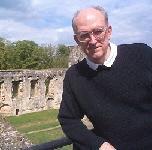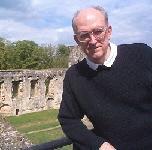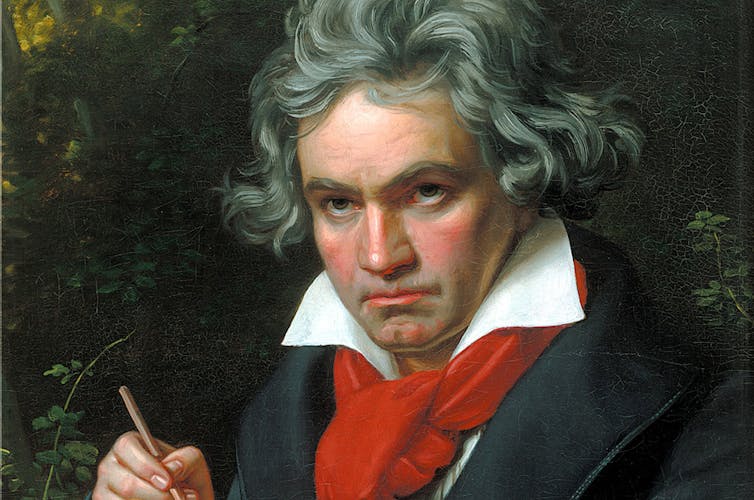Nagano’s Quebec orchestra triumphs in Boston
Kent Nagano made a triumphal return to Boston Wednesday evening (March 16) with his Orchestre Symphonique de Montreal, conducting there for the first time in many years before a wildly enthusiastic audience. Amid the seven curtain calls and two full-orchestra encores, he stopped to pay homage to Montreal, where he has served as music director for ten years, and addressed the audience in French:
“Merci beaucoup.”
Nagano spent his formative years in Boston as assistant to the late Sarah Caldwell in opera production, then later worked as assistant conductor under Seiji Ozawa and the Boston Symphony Orchestra. Now among his European activities he serves as general music director and principal conductor of the Hamburg State Opera and Philharmonic Orchestra, and principal guest conductor and artistic advisor of the Gothenburg Symphony Orchestra.
His return to Boston this week revealed him as a fully mature world-class conductor with the requisite charisma and authority over the 100-plus Montreal players. His podium demeanor avoids all excess.
Boston was the third stop on a ten-city U.S. tour, the first undertaking of such an extent in 25 years.
The orchestra played a relatively safe program of Debussy, Prokofiev and Stravinsky but there was nothing safe about the sparkling, edgy performance. The atmosphere in Symphony Hall was electric.
Following the concert I found Nagano backstage and asked him how the felt about the tumultuous reception. “We got this tremendous energy from the audience,” he said in disbelief, “and that in turn energized the players.” I questioned him on the near-surgical precision of his musicians, one quality that sets the Montreal orchestra apart. “Detail,” he said. “It’s all about detail. We analyze every note, every phrase and we put it all together.”
The program was intelligently set up to provide a steady crescendo throughout the more than two hours of music. He eased into the evening with Debussy’s Prelude a l’apres-midi d’un faune, a ten-minute exercise in sensual, sumptuous orchestration that showed off the players’ mastery of tone and color. This animation of the score gives a sense of the impact Debussy created and Nagano produced.
The concerto is perhaps the most melodic, the most exciting and arguably the most demanding of Prokofiev’s five works in this genre. Trifonov is already an artist of surpassing quality with emphasis on Chopin and Rachmaninov, and judging by his Wednesday performance Prokofiev may be his next focus. He displayed total involvement in the task before him, and seemed at home with Nagano and his blistering pace. Already known for eccentric body language, Trifonov gave Boston the full range of hair-flicks, bench-bouncing and body spasms. I was reminded of the late Charles Rosen’s description of pianists’ physicality. “The heartbeat quickens and the body tenses during passages of raging fury: the body imitates the music.”
Trifonov brought the audience along with him, eliciting spontaneous applause between movements and producing a roar of approval and standing ovation at the end. He obliged with multiple curtain calls and a light encore.
Following the intermission, Nagano delivered the evening’s greatest treat, Stravinsky’s Rite of Spring. Conducting from memory, he turned the once-scandalous – now standard – Stravinsky masterpiece into a kaleidoscope of powerfully punctuated segments and dissonant harmonies. Complex rhythms of the pah-oom variety posed no problem for the confident Montreal players. During the curtain calls Nagano singled out the percussion section which had hammered the Stravinsky score with such verve. Even without the Nijinsky choreography the music has carried on for 103 years, ever more popular with modern audiences.
Nagano offered two additional orchestral encores, a delightful rarity at this level of performance.
Interview with Kent Nagano
Nagano is known in Montreal as a workaholic who keeps to a tight schedule. He agreed to a 15-minute interview by telephone with me as a prelude to his Boston appearance. Here is an edited transcript of our interview:

Kent Nagano by the author, Michael Johnson
Your return to Boston must be nostalgic for you.
Yes this is my first stop in Boston with the Orchestre Symphonique de Montréal and it will be an emotional experience for me. Boston is a city with a great orchestra and a great musical tradition dating back to the early 1900s. I first worked with Sarah Caldwell, then maestro Seiji Ozawa invited me back and work with him and the BSO. It was the worst winter since Valley Forge, 1976-1977. I arrived in California loafers and a pullover sweater and I wondered what is this white stuff everywhere?
Serge Koussevitzky, while music director of the BSO, had a mission to bring contemporary music to the Boston audience. Do Montrealers accept new music as readily as Boston audiences did – and continue to do?
From my experience the OSM is very, very fortunate to have the public that we have. Compared to audiences around the world, they are among the most sophisticated open-minded and adventurous that I have ever encountered – and that’ s a wonderful fertile context for the OSM to perform. Yes we do program a lot of new music but that is not the point. It’s only a demonstration of the love of the repertoire. One of our main concerns is seeing that the repertoire continues to grow.
Wasn’t the 20th century a time of great upheaval, sometimes controversial?
It’s interesting to look back 16 years and see that 20th century – far from being a dangerous century – it was probably one of the richest periods we have seen in terms of adding to the list of great standard masterpieces. Debussy, Rachmaninov, Prokofiev Shostakovich … the list goes on and on. If we want our great tradition to continue, then of course it means engaging with composers of exceptional quality who are going to keep our art form progressing and going forward. Even works that today are considered some of the anchors or foundations for young composers -- I’m thinking of the Turangalila Symphony and the Bartok Concerto for Orchestra. They have enormous impact on how composers today think about going forward.
You are known for outdoor celebrations and crossover concerts. Are these activities bringing in new music-lovers? What’s happening in audience makeup?
Here in Montreal our audience is now statistically among the youngest in North America. We sell out every concert, and the OSM has become a meeting point for sharing values and esthetic discussions. That’s at the core of what the identity and definition of a symphony orchestra is and should be. From that point of view it is very exciting here.
Your are something of a Messiaen specialist. How is he doing with your audiences.
Yes, I studied with him and lived with him and his wife Yvonne Loriod for a year. He is already established as one of the great composers of the 20th century. When Turangalila is played, it’s no longer an isolated event. Not all of Messiaen’s works are met with immediate enthusiasm from the audience but the great works, if they are performed well, always, in my experience, elicit enormous sympathy and enthusiasm.
What Messiaen is in your repertoire besides Turangalila?
I conduct the entire Messiaen canon. All of the works are active in my repertoire. I am doing a complete recording cycle with the Bayerische Rundfunk of the great Messiaen symphonic works.
When is that due to be completed?
Oh in about a hundred years (laughs). We just started this year and were doing one or two works a year so it will take a while.
Do you approach composers and ask them to write something for you, like Koussevitzky used to do?
Oh yes, actively. You know we’re living in a special time. I see a generation of very, very young composers coming up now who are extraordinary. An amazing group of exceptional talent is coming up. It’s very exciting, and yes, I am asking them to write for me and for my orchestras. I’m following very carefully their development. It bodes well for the repertoire of the 21st century.
Where do you find these promising youngsters?
Funnily enough, you find them everywhere. I have commissioned the New Yorker Sean Shepherd, our own Canadian Samy Moussa, another Canadian Matthew Ricketts. These are young composers – in their 20s and early 30s. At least from my point of view, they are showing enormous potential with highly refined compositional voices. They are artists to watch.
The concert review and interview with Kent Nagano first appeared on The Arts Fuse, artsfuse.org
This article is brought to you by the author who owns the copyright to the text.
Should you want to support the author’s creative work you can use the PayPal “Donate” button below.
Your donation is a transaction between you and the author. The proceeds go directly to the author’s PayPal account in full less PayPal’s commission.
Facts & Arts neither receives information about you, nor of your donation, nor does Facts & Arts receive a commission.
Facts & Arts does not pay the author, nor takes paid by the author, for the posting of the author's material on Facts & Arts. Facts & Arts finances its operations by selling advertising space.




















